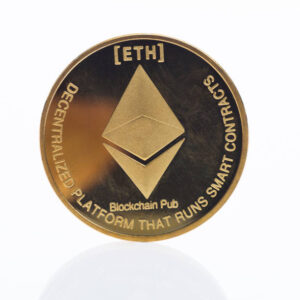New EIP Could Enhance Layer 1 Speed By 33%
A new Ethereum Improvement Proposal (EIP), EIP-7781, introduced on October 5 by Illyriad Games co-founder Ben Adams, could significantly boost Ethereum’s transaction throughput by reducing the network’s slot time from 12 seconds to 9 seconds. The proposed change is aimed at increasing transaction throughput by approximately 33%.
The motivation behind the proposal is to better distribute bandwidth usage over time, thereby lowering peak bandwidth requirements. By smoothing out bandwidth needs, Ethereum could maintain greater efficiency and reduce stress on node operators, particularly those with limited bandwidth capacity. According to Adams, this adjustment is designed to enhance throughput without compromising the accessibility of the network.
Is The Ethereum Improvement Proposal Feasible?
In his official proposal on GitHub, Adams explained, “Reducing Ethereum’s slot time from 12 seconds to 9 seconds can reduce rollup latency and increase transaction throughput by approximately 33% without increasing individual block or blob counts. This would distribute bandwidth usage over time, lowering peak bandwidth requirements while maintaining network efficiency.”
The implementation of EIP-7781 is contingent on two other EIPs—EIP-7623 and EIP-7778. These proposals are crucial to ensuring the stability of the network under the increased block production rate. They are designed to mitigate any potential negative effects of the slot time reduction, such as increased orphan rates or network instability.
EIP-7781 aims to create a balance between throughput and network accessibility by maintaining node efficiency without overburdening the system. This is particularly important for maintaining Ethereum’s decentralized ethos, ensuring that even participants with less sophisticated infrastructure can continue to run nodes.
Prominent Ethereum Foundation researcher Justin Drake weighed in on the proposal, expressing cautious support. In a comment, Drake stated, “My initial reaction would be to support reducing slot times to 8 seconds for a few reasons: It increases throughput by 1/2, an effective increase to a 45M gas limit and 9 blob limit. This roughly aligns with the proposed 40M gas limit by pumpthegas.org and the 8 blob limit by Vitalik and others.”
Drake also noted the benefits for decentralized exchanges (DEXs), stating that the change would make DEXs like Uniswap v3 “roughly 1.22x more efficient,” potentially saving approximately $100 million in centralized exchange (CEX)-DEX arbitrage annually.
However, Drake also mentioned a possible drawback: “One downside of reducing slot times is that it will make timing games slightly more acute because of the slot-to-ping ratio decrease. Assuming an 80ms ping time and a 9s slot time, the slot-to-ping ratio would still be healthy.”
Adam Cochran, a partner at CEHV, expressed his support but added a note of caution, especially for smaller stakers. He wrote on X, “Honestly this seems reasonable in terms of bandwidth on solo stakers too as long as the gas limit per block stays the same. Would want to see some tests on I/O hardware and staker return ping times to make sure it doesn’t cut off some home stakers, but seems like it should be within range for most.”
However, not all voices in the community are fully optimistic. Pseudonymous researcher 0xSmit raised concerns regarding existing smart contracts that rely on a 12-second block time. According to him, “Lots of contracts have hard-coded the value of a year in blocks based on 12-second block times. It might break things if this passes, especially for contracts without upgrade mechanisms.”
At press time, ETH traded at $2,463.

Featured image created with DALL.E, chart from TradingView.com








